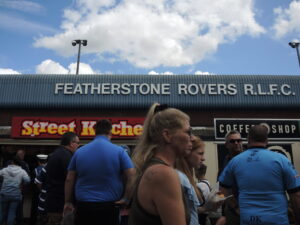In the autumn of 1996, Tony Blair and the New Labour bandwagon arrived in Blackpool for the final party conference before the election. A sense of euphoria was starting to take hold: as they hit 57% in the polls, it looked like they were home and dry.
The Conservative Government, by contrast, were stumbling through their 17th year in office against a backdrop of scandal, corruption and sleaze. Increasingly caught in the crossfire of a tabloid war, each weekend would bring another problem. John Major’s press secretary Christopher Meyer would receive a phone call every Saturday night outlining how the Sunday papers had another story to drop. Each time they had to decide whether to sack someone or stand by them. “The notion of a corrupt government,” Meyer recalled in his memoir, “began to spread like poison through the country”.
By-election defeats and division over Europe had put New Labour in the box seat. Businesses began to defect towards them. On the eve of the 1996 conference, Chelsea FC shareholder Matthew Harding, who had made £150 million on the Lloyd’s insurance market, gave the party its biggest ever individual donation: a £1 million boost to support an “Enough is Enough” advertising campaign to kick the Tories out. “I think New Labour has a far greater understanding of the enterprise economy than many people in the Tory Party do,” he said.
And yet, despite the momentum behind him, Blair arrived in Blackpool to find a party, a media and a wider public that was deeply sceptical about his ability to win. Old titans such as Barbara Castle stirred conference by making a speech on pensioner poverty and accused the leadership of ignoring their concerns. Aged 86, she put forward a package that was shot down by Harriet Harman as being too costly. When the row spilled over into the media, she accused the leadership of engaging in a “dirty tricks” campaign against her. “They are fighting dirty because they’re frightened,” she said.
Others believed that the party was lacking a “big vision” for the country. Future home secretary Charles Clarke warned that “uncertainty and lack of direction could be fatal” come election time. Deputy Leader John Prescott, by contrast, said there was too much vision. “Sometimes you can go too fast,” he warned. New Labour had “hit the bloody wall, the buffers”. On the Left, meanwhile, Jeremy Corbyn took to the pages of Tribune to argue for a much wider policy debate. “Those of us who question the strategy,” he wrote, “are told that we are either disloyal or dangerous”.
The media had also not yet warmd to the idea of Blair as Prime Minister. At The Daily Mail, Ann Leslie was convinced that Blair was not sexy enough to win over the voters, explaining why “women find this man so smarmy”. At the Daily Telegraph, star commentator Boris Johnson accused him of “weaving like a drunken magpie from allusion to allusion”. “Sooner or later”, observed Johnson, “he will face a serious revolt”. The pollsters agreed. The doyen of the BBC election night coverage, Anthony King, analysed the polls and found indifference to what Blair was trying to achieve. “There will be little rejoicing if Labour comes to power but little gnashing of teeth either,” he wrote. When the commentator Matthew d’Ancona observed the mood on the ground, he coined a new phrase for growing tribe within the party — “Scared Labour” — who believed that their lead would evaporate by Christmas.
History, of course, tells us that Labour had nothing to worry about. But any comparison with 1996 is going to do little to assuage fears that Starmer has not yet sealed the deal with the voters either. For all the analysis — from the bookmakers to journalists to pollsters — who say that he is heading for a historic victory, there is a sense that the public are still unconvinced. The argument, backed up by recent polling, shows that there may still be a route to victory for Sunak.
Starmer, as Blair found out in 1996, will have to win over a sceptical country that doesn’t take to opposition leaders lightly. For all the talk that British politics is continually in a “State of Chaos”, voters rarely want to change the governing party. It is, after all, a remarkable fact that the teenagers who were able to vote for the first time in 1979 are now in their early Sixties and have only seen the governing party change twice: through Tony Blair and David Cameron. It is little wonder that scepticism to opposition poll-leads runs deep within the national psyche.
All of which means that this conference season matters for Starmer. It is also perhaps why, according to reports, Starmer is “struggling a little” with his upcoming speech. Yet if Starmer needs some inspiration, he could do worse than consider how those three winners — Thatcher, Blair and Cameron — took their party from opposition to government.
In the Seventies, Thatcher warned that there would be no quick economic fix — “We Conservatives don’t have a blue-print for instant success” — but there was still a commitment to change the economy by reducing taxes and staying out of pay disputes. For Blair in 1996, the speech was a reassurance that Old Labour was dead but that he would not disrupt the settlement of the previous decade. Underpinning it was a call to move on from the class politics of the past: “forget the past, no more bosses versus workers — we are on the same side, the same team, and Britain united will win!” As for Cameron, he promised an end to the “gravy-train” of politics as well as “big government” that had caused as many problems as it had solved.
When Starmer delivers his speech in Liverpool, there will be an expectation that he sets out his own vision for government. At the same time, however, he must also do the thing that all successful opposition leaders do: speak to the voters who haven’t voted for you in decades. Both Blair and Cameron sought to do so by neutralising their traditional weak spots and moving the policy agenda to their turf. “It is the weak and the vulnerable who suffer most from crime,” Blair said. “So, we will be tough on the causes of crime, but tough on crime too.” Cameron likewise decided to fight Gordon Brown on poverty. “Labour still have the arrogance to think that they are the ones who will fight poverty and deprivation,” he argued. “Don’t you dare lecture us about poverty. You have failed and it falls to us, the modern Conservative Party to fight for the poorest who you have let down.”
Yet the task for Starmer is arguably bigger than the one presented to Blair and Cameron. The multiple crises facing the country are more like those that faced Thatcher at the end of the Seventies. Back then, few people believed that she actually had the will and the means to mould the country in her image. The desire to win those voters over was central to her conference speech in 1978. She began by mythologising Labour’s past and accepting that people had a strong bond with the idea and values of the party. She had already told Tory agents to go out to the country and win them. “They remain cut off from us by a wall of misunderstanding, old battles, old prejudices.”
In that speech, she talked about how much she had respected the leaders of Labour’s past. “Many of us remember the Labour Party as it used to be. In the old days it was at least a party of ideals. You didn’t have to agree with Labour to understand its appeal and respect its concern for the underdog.” By the time the Winter of Discontent came she had an argument ready that opened the door for Labour voters to switch party for the first time. For all the parallels with the Seventies, Starmer has been unable to narrate the crisis of the past few years into one coherent thread.
Starmer used the Covid pandemic to argue that the fundamental relationship between people and government had changed. He talked up a 1945 moment, casting himself as a modern day Clement Attlee: “I believe people are now looking for more from their government — like they were in the Second World War.” Yet the language of “security” and “fiscal responsibility” combined with the decision to ditch many of his original pledges has left people wondering how radical he will really be. Starmer has not only admitted that his plans “may not set people’s pulses racing”, they have also opened him up to attack; first as Captain Hindsight, and then as a “flip-flopper” who can’t be trusted. In his speech in Manchester last week, Sunak signalled that it would be his attack line come an election: “The worst thing about Sir Keir is that he just says whatever he thinks will benefit him most.”
Tories hope that come election time the voters will see him as an opportunist, like Neil Kinnock, who ditched all his policies just so he could become Prime Minister rather than a pragmatist like Tony Blair. Labour hope that voters want an end to the “chaos” and the politics of broken promises. But at the same time, history shows us that the opposition leaders who win are able to get the “pluses racing”. Thatcher, Blair, and Cameron were not only able to narrate a crisis — they could also tell voters a story about how their leadership would change the face of Britain. As he arrives in Liverpool, Starmer is going to have to learn quick that safety-first can only get you so far.
Disclaimer
Some of the posts we share are controversial and we do not necessarily agree with them in the whole extend. Sometimes we agree with the content or part of it but we do not agree with the narration or language. Nevertheless we find them somehow interesting, valuable and/or informative or we share them, because we strongly believe in freedom of speech, free press and journalism. We strongly encourage you to have a critical approach to all the content, do your own research and analysis to build your own opinion.
We would be glad to have your feedback.
Source: UnHerd Read the original article here: https://unherd.com/



